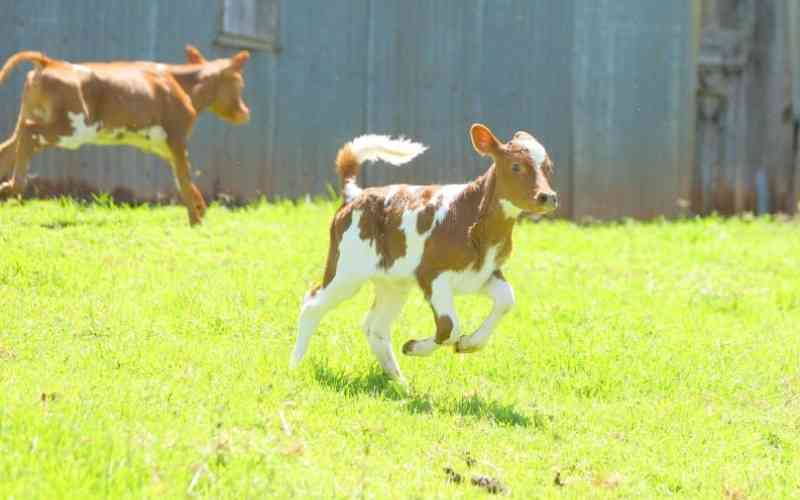
Calfs play at Kisii Agricultural Training Center. [Sammy Omingo, Standard]
You had a pregnant cow and finally the calf is here. What next? The first few hours after birth of a calf are critical moments for the mother and the new born. For the calf, it is a life foundation being laid and it must be nurtured well to support it through the neonatal stage and through to weaning, post weaning and maturity. For the mother, it is a time when diseases may attack the reproductive system due to low immunity. Today, I will focus on the calf and how a farmer can walk it through this critical stage with success.